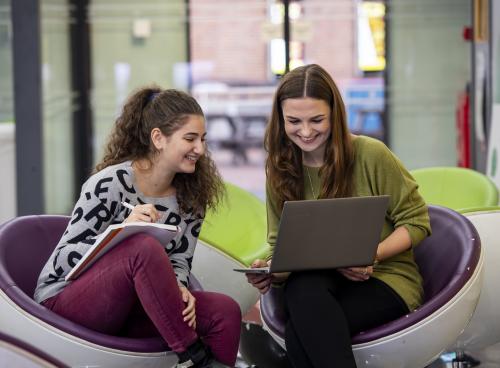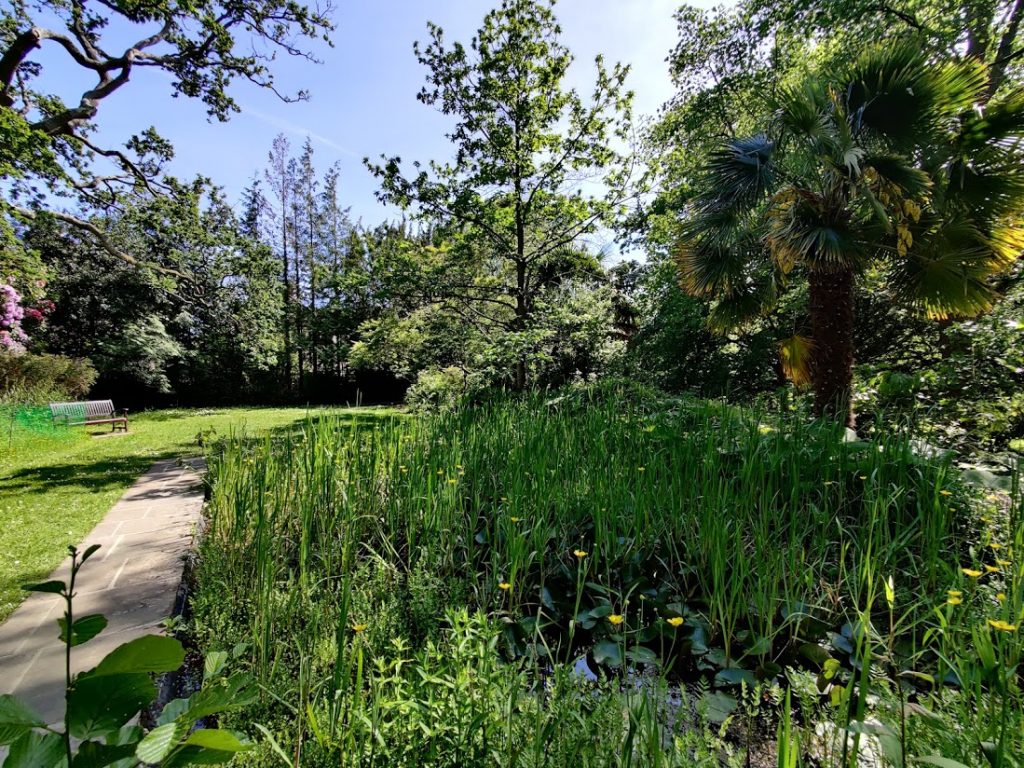Dr Emma Palmer-Cooper, Lecturer in the School of Psychology, collaborated on a multi-site, programme of research about student wellbeing during the Pandemic. The most recent paper in this project has just been published, so here’s a run-down of what the team found!
A review of student mental wellbeing during the early pandemic ‘Wellbeing among university students during the COVID-19 pandemic: a systematic review of longitudinal studies’ published in Public Health (2023) found that university students experienced a decrease in wellbeing during the early stages of the pandemic, compared to before. Wellbeing was higher among males and associated with socioeconomic status, more sleep and physical activity, greater social connectedness, less alcohol use, and less social media activity. Results identify useful information for promoting student wellbeing generally, and during times of crisis. The team concluded that targets and interventions to support student mental wellbeing should most importantly promote social connectedness. Other important factors include promoting regular physical activity, good sleep practice, and reducing alcohol intake and social media use.

In the study ‘Neighbourhood greenspaces and mental wellbeing among university students in England during the COVID-19 pandemic: an online survey under lockdown’ published in Cities and Health (2023), the team investigated mental wellbeing of young adult university students in the UK, and uniquely addressed the use of greenspace (open-space such as parks, gardens, playing fields). They found that quality of greenspace had a greater impact on mental well-being; more so than usage and quantity available, even when controlling for demographic factors. Neighbourhood greenspace quality contributed to mental wellbeing beyond physical activity, social support, and demographic factors, including for those students with prior mental health issues. These findings emphasize the importance of greenspace for mental wellbeing and suggest that greenspace considerations should be prioritised for university and civic spaces to promote wellbeing.
In the most recent publication from the project, ‘Mental wellbeing among higher education students in England during the pandemic: A longitudinal study of COVID-19 experiences, social connectedness and greenspace use’ published British Educational Research Journal (2024), the team looked at how health and place were related over time in the mid-COVID-19 pandemic (Spring 2021 to Autumn 2021), to understand how social and personal behaviours changed and adapted to pandemic-related social restrictions.
In the most recent publication from the project, ‘Mental wellbeing among higher education students in England during the pandemic: A longitudinal study of COVID-19 experiences, social connectedness and greenspace use’ published British Educational Research Journal (2024), the team looked at how health and place were related over time in the mid-COVID-19 pandemic (Spring 2021 to Autumn 2021), to understand how social and personal behaviours changed and adapted to pandemic-related social restrictions.

Findings highlighted that mental wellbeing of students significantly improved over time, whereas fear of COVID-19 and engagement in protective behaviours decreased as restrictions eased. Greenspaces were used more often than before the pandemic restrictions, and overtime this was a unique predictor of wellbeing in the spring-time, but not the autumn. This is likely due to both the change in weather, with colder outdoor temperatures in Autumn compared to Spring, and also the easing of restrictions allowing for socialising indoors. Greenspace use was linked to group membership and social support, suggesting that during strict social restrictions these areas promoted social connectedness. Greenspace was also linked to physical activity, demonstrating benefits to physical and mental wellbeing. The team suggest promoting the use of greenspace for students as a way to improve wellbeing, particularly in times when social interaction is restricted or limited.
Together, the research highlights the importance of using greenspaces to support and promote student wellbeing, particularly in stressful times. Whilst the research was conducted during the pandemic, the lessons about how to support student wellbeing are still useful.
Emma is working with University support teams to apply this and related research to new recommendations for students, with a focus on supporting mental health during stressful periods, such as exams and other areas of university life. Emma is also developing new research to understand how students can use this information and actively apply it to their lives.
“With the Spring season approaching, I encourage our students to make time to go outside and enjoy the free benefits to your wellbeing! Our campus and surrounding spaces are all beautiful, Valley Gardens is a particularly nice place for a coffee or a break from study.”
Emma Palmer-Cooper
